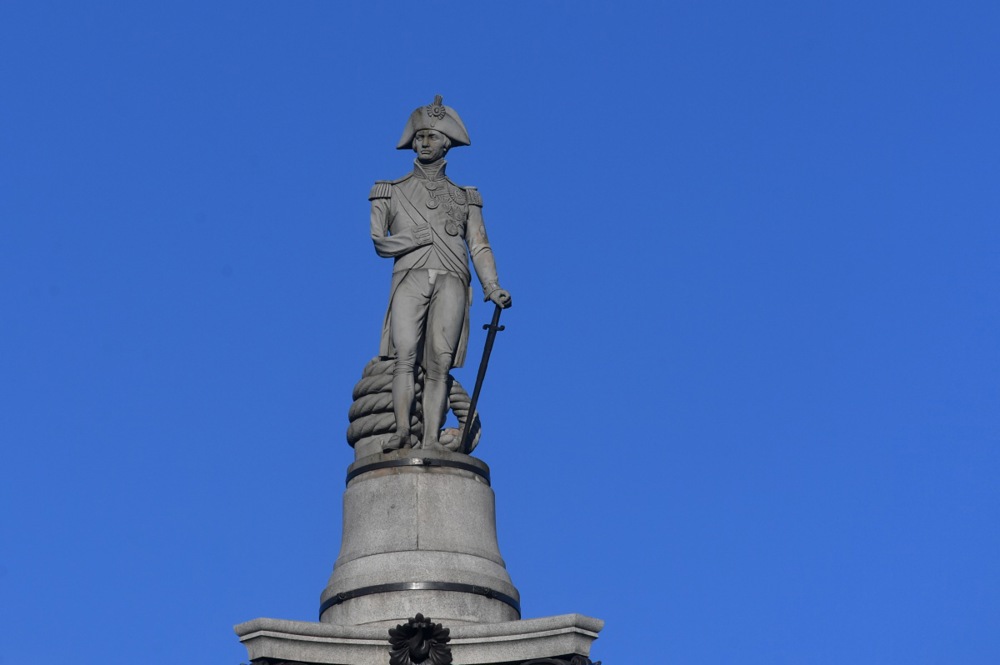Donald Trump says it and the European establishment goes convulsive, as ever.
At the weekend it was Trump’s jibe that if a NATO country did not pay its full dues into defence, the US would not protect it if Russia attacked. “In fact, I would encourage [Russia] to do whatever the hell they want.”
Worth a European spasm? No, not if you speak Trump, and I do.
With Trump, you listen for the signal not the noise.
The signal here is that the European countries are not spending enough on defence to protect themselves from Russia. That is a fact, not a political jibe.
The countries of Europe have been freeloading on American defence spending since 1945. The Europeans have had generations to build up their economies and buy their own armaments, but they don’t.
They hide behind Article 5 of the NATO treaty, which they say means each member (that would mean America) is obliged to go to war to defend any of its allies who are attacked.
Except that is not what Article 5 says.
Treaties are written by lawyers. They always include a get-out clause for their clients.
Article 5 does not say one ally must go to war to protect another. It just says that if an attack against one occurs, another NATO ally will take “such action as it deems necessary.”
As it deems necessary. Not what NATO deems necessary.
Could be armed force, though not necessarily. Could be setting up a peace conference. Who knows? A get-out clause is a slippery thing.
All of which puts Trump in a rational group who say that if you want to defend European territory, Europeans must spend the money, train the troops, buy the bullets.
Yet what we can call the European War Party is demanding that to defend European territory, Americans must spend the money, train the troops, buy the bullets.
The loudest of the War Party is the former British Prime Minister Boris Johnson.
Johnson still has a voice in the Daily Mail, a newspaper for which I have enormous admiration except for when I don’t, which is, when Johnson gets column inches. Johnson is a fraud.
He has latched onto the sufferings of Ukraine so he can pretend to be a Churchill of our times. First sign of the fraud is that Johnson keeps likening Putin to Hitler.
Spike the cliché. Putin is his own kind of evil, and trying to put him in a Hitler field grey German army uniform is as brainless as Johnson trying to put himself in Churchill’s wartime siren suit.
The fit is off, all around.
Still, Johnson needs a Hitler so he can play Churchill. He was at it again full-bombast last week, writing that a Putin victory in Ukraine would mean “the descent of much of Europe, once again, into darkness and fear.”
Crickey, the lights are going out all over Europe. Or not.
“To all those Republicans who are currently blocking aid to Ukraine, I say, for God’s sake remember who you are.”
“You are the heirs of Ronald Reagan, the leaders of the last best hope of earth.”
The Americans are already in for more than $100bn, with $60bn more this year, and next year, if Trump does not win in the election, with no auditor along to see where all the money is going. Yet Ukraine has no victory.
Ronald Reagan would not have gone along with that.
The worst that War Party Johnson threw in was a drive-by smear of those Americans who in the years before the Second World War had the wisdom to want to stay out: “Remember Charles Lindbergh,” he sneered, “remember the America Firsters.”
Remember Charles Lindbergh? I remember little else when I am trying to weigh whether the United States should go to war.
I am not alone in my admiration. The latest edition of the American Conservative journal has a piece by Hunter DeRensis on what it means to be “America first.”
The phrase was originally used by the Democrat Woodrow Wilson in his presidential re-election campaign in 1916. Five months later Wilson was asking Congress for a declaration of war against Germany.
Here is how that ended. Senator Hiram Johnson surveyed the post-war landscape:
“We have engaged in a miserable misadventure stultifying our professions, and setting at naught our promises. We have punished no guilty; we have but brought misery and starvation and death to the innocent… We have sacrificed our own blood to no purpose.”
That should have been America’s first and last adventure in European war. In the 1930s, little changed. As war began again in Europe, Americans said “This is not our fight.”
One of the finest men leading the resistance to more war was Charles Lindbergh, aviator, military officer and hero.
If you want to see what an American hero used to be, find the 1927 newsreel footage of the moment the 25-year-old Lindbergh landed his Spirit of St Louis airplane at Le Bourget, the night he completed the first non-stop solo flight from New York to Paris. The spotlights sweep over a crowd of 150,000 people rushing and roaring across the field to greet the hero.
You can imagine why, in the following decade, the American people listened to Lindbergh when he warned against more war.
He was quiet, he was thoughtful, and before anybody mentions Lindbergh’s thoughts on race, I will say he was a man of his time and I wish he had not felt as he did.
Still, if you want to know how common his thoughts on race were then, recall that President Franklin Roosevelt said in 1942 that “America is a Protestant country. The Catholics and Jews are here under sufferance.”
The same year Roosevelt ordered thousands of Americans of Japanese descent to be interned without trial. Meantime he put a German American in charge of United States forces.
It was a time when ideas were not like our own.
When the Japanese launched their attack on Pearl Harbor, Lindbergh volunteered to fight. Roosevelt barred a military commission to him, but he flew 50 combat missions across the Pacific as a civilian consultant, strafing, bombing, fighting.
Lindbergh was right. Avoid war but be ready to fight. That is why he is worth listening to. He understood the full argument.






Ireland’s establishment parties are panicking about the public backlash against mass immigration – but their Europhilia means they are left defenceless